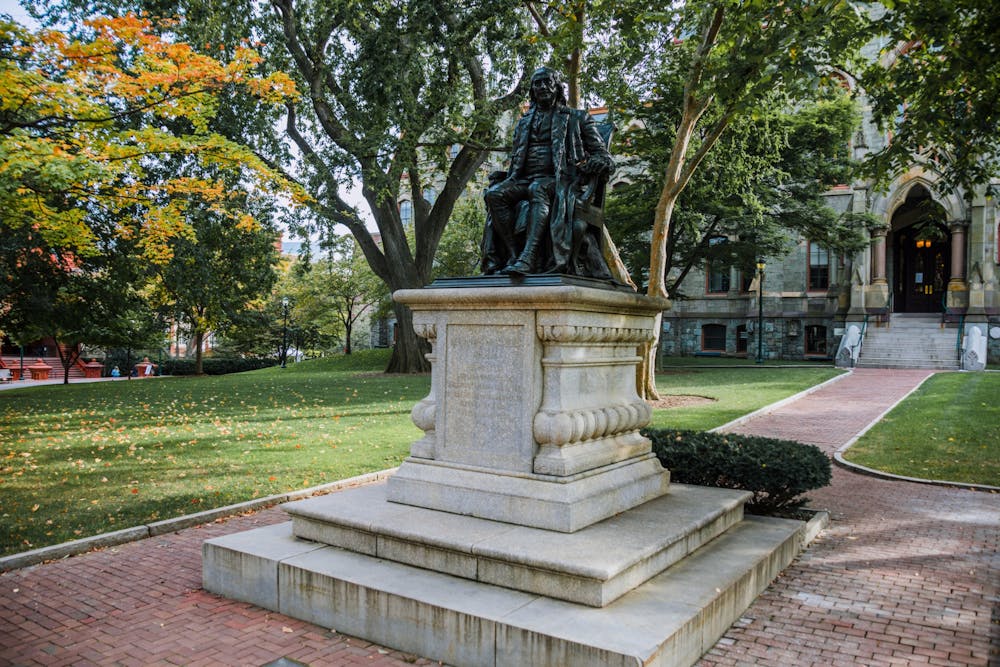
Given today’s divided social climate, it is more important than ever to address the nation’s ugly history and to recognize the injustices inflicted by those before us. As universities seek to educate the world and aid society, they provide the perfect platform to disseminate knowledge and elicit positive change among younger generations. While this may seem like an obvious responsibility, it often fails to occur. Many universities seek to hide, conceal, or minimize aspects of their past that would be considered shameful, unfortunately enforcing the ignorance that plagues American society.
Penn represents this lack of awareness with the devout celebration of its founder, Benjamin Franklin. Well-known for his profoundly unique vision of education and his monumental contributions to the country, Franklin undoubtedly deserves the fame, glory, and honor associated with his name. What people often forget, however, is that Franklin was also a slaveholder and therefore played a role in the process of forced labor, benefiting from others’ misery. He eventually grew to understand the horrific dehumanization of slavery and served as a strong voice in the abolitionist movement, branding him in history books as a moral and ethical founding father. While Franklin’s positive contributions and change of heart are both laudable, the fact that he was a slaveholder should not remain obscured. Recognizing his dark past and moral development will allow us to understand all parts of Ben Franklin’s legacy. As such, Penn should acknowledge this complicated legacy by adding the word “slaveholder” to his statue.
Many Penn students are not aware of Franklin’s history, viewing him in the purely positive light he is portrayed in. This sense of ignorance towards one’s own school is incredibly disappointing, and though Penn is making efforts to address racial issues, more can be done. The recent removal of George Whitefield’s statue certainly demonstrates the school’s desire to dissociate themselves from racism, but it is limited because nothing has been done about Franklin. Why is he an exception? He and Whitefield were friends and committed the same crime of owning slaves, yet Franklin seems to have immunity.
None of this is to say that Franklin’s statue should be removed, just as his many meaningful contributions shouldn’t be un-celebrated. But Penn can make physical changes to address Franklin’s past. Editing his statue to read “slaveholder” and “abolitionist” would provide the Penn community with all the true, unbiased facts, and would allow people to recognize the full extent of his legacy, both good and bad.
Though all institutions seek to avoid the negative association with racism and slavery, it is an unchangeable aspect of Penn’s history and therefore must be discussed. Recognizing this history and educating the community with the facts will speak volumes to the school itself, proving that people can learn from the past and work together to create positive change.
EMILY CHANG is a College first-year student studying Sociology. Her email address is changem@sas.upenn.edu.
The Daily Pennsylvanian is an independent, student-run newspaper. Please consider making a donation to support the coverage that shapes the University. Your generosity ensures a future of strong journalism at Penn.
Donate



